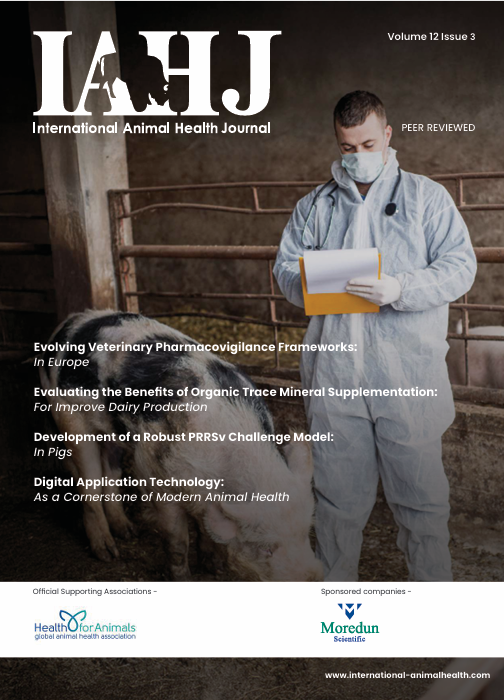On the Prevalence and Severity of Cryptosporidium Infections in Young Calves
Cryptosporidiosis is a major cause of morbidity and economic loss in the livestock industry, particularly in neonatal calves. This study evaluated the impact of probiotic supplementation on Cryptosporidium infections in 50 calves over a 6-week period on a commercial dairy farm. Calves were divided into treatment and control groups, with probiotics administered according to manufacturer guidelines. Faecal testing, scour scoring, body weight and temperature monitoring were used to assess infection severity.
Probiotic supplementation significantly reduced Cryptosporidium prevalence and improved clinical outcomes, including higher milk consumption (morning: Estimate = 0.327 L, SE = 0.046, p < 0.0001; evening: Estimate = 0.185 L, SE = 0.045, p < 0.0001), improved temperature regulation (Estimate = –0.36°C, SE = 0.09, p = 0.0052) and lower scour severity (Estimate = –1.83, z = –8.25, p < 0.001). Effects varied with calf age, with significant temperature differences at 7–12 days, reflecting infection dynamics.
These findings suggest that probiotics offer a practical approach to reducing Cryptosporidium infections and improving calf health, with potential benefits for livestock productivity and farm sustainability. Further work should explore underlying mechanisms and long-term outcomes.













